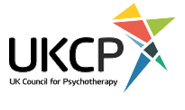
Begin Healing From Within
I believe that true healing and meaningful change begin within. As an attachment-based therapist, I help individuals build a deeper, more compassionate relationship with themselves. Many emotional struggles – including anxiety, depression, and repetitive relationship issues –can be traced back to early attachment experiences and our core sense of self.
It’s common to carry feelings of guilt, shame, or regret, especially when past wounds remain unhealed. You might feel stuck in patterns that no longer serve you. But therapy isn’t about erasing the past—it’s about understanding, integrating, and honouring it.
I often think of the Japanese art of kintsugi, where broken pottery is repaired with gold. The cracks are not hidden – they’re highlighted. In the same way, your emotional scars are not flaws. They are part of your unique story, your resilience, and your strength.
Who I Work With
I support people who:
-
Feel stuck in repetitive or painful relationship dynamics
-
Struggle with low self-esteem, anxiety, or depression
-
Feel disconnected from themselves or unsure of who they are
-
Are questioning their sexuality or identity
-
Are considering leaving a religious or faith-based group
-
Are navigating major life transitions such as leaving home, becoming a parent, facing illness, or relocating to a new country
My Therapeutic Approach
My work is grounded in attachment theory, which explores how early relational experiences shape our emotional lives.
Many of the struggles we face in adulthood — feeling stuck, disconnected, or overwhelmed by intimacy — have roots in our earliest relationships.
In therapy, we begin to notice these patterns with care. Not to judge or pathologise, but to understand how your nervous system learned to protect you — and how those protections might now be holding you back.
This is the heart of attachment-based therapy.
If you’re curious to explore more, I’ve written a gentle four-part blog series on how different attachment patterns show up in adult life.
Read the series here.
Therapy with me is a collaborative process. I offer both online therapy and in-person sessions in Hertfordshire, providing a safe, confidential, and non-judgemental space for reflection and growth.
What to Expect
In therapy, we will gently explore what’s holding you back. Together, we can shift the way you relate to yourself and others—moving toward a place of greater self-acceptance, clarity, and emotional freedom.
You don’t have to be like everyone else. In fact, your differences, your survival, and your story are what make you remarkable. This is a space to honour your uniqueness, reclaim your voice, and begin the journey of self-forgiveness.
Get in Touch
If you’re ready to start therapy or have any questions, please don’t hesitate to contact me. I’d be happy to hear from you.
Begin Healing From Within
I believe that true healing and meaningful change begin within. As an attachment-based therapist, I help individuals build a deeper, more compassionate relationship with themselves. Many emotional struggles – including anxiety, depression, and repetitive relationship issues –can be traced back to early attachment experiences and our core sense of self.
It’s common to carry feelings of guilt, shame, or regret, especially when past wounds remain unhealed. You might feel stuck in patterns that no longer serve you. But therapy isn’t about erasing the past—it’s about understanding, integrating, and honouring it.
I often think of the Japanese art of kintsugi, where broken pottery is repaired with gold. The cracks are not hidden – they’re highlighted. In the same way, your emotional scars are not flaws. They are part of your unique story, your resilience, and your strength.
Who I Work With
I support people who:
-
Feel stuck in repetitive or painful relationship dynamics
-
Struggle with low self-esteem, anxiety, or depression
-
Feel disconnected from themselves or unsure of who they are
-
Are questioning their sexuality or identity
-
Are considering leaving a religious or faith-based group
-
Are navigating major life transitions such as leaving home, becoming a parent, facing illness, or relocating to a new country
My Therapeutic Approach
My work is grounded in attachment theory, which explores how early relational experiences shape our emotional lives.
Many of the struggles we face in adulthood — feeling stuck, disconnected, or overwhelmed by intimacy — have roots in our earliest relationships.
In therapy, we begin to notice these patterns with care. Not to judge or pathologise, but to understand how your nervous system learned to protect you — and how those protections might now be holding you back.
This is the heart of attachment-based therapy.
If you’re curious to explore more, I’ve written a gentle four-part blog series on how different attachment patterns show up in adult life.
Read the series here.
Therapy with me is a collaborative process. I offer both online therapy and in-person sessions in Hertfordshire, providing a safe, confidential, and non-judgemental space for reflection and growth.
What to Expect
In therapy, we will gently explore what’s holding you back. Together, we can shift the way you relate to yourself and others—moving toward a place of greater self-acceptance, clarity, and emotional freedom.
You don’t have to be like everyone else. In fact, your differences, your survival, and your story are what make you remarkable. This is a space to honour your uniqueness, reclaim your voice, and begin the journey of self-forgiveness.
Get in Touch
If you’re ready to start therapy or have any questions, please don’t hesitate to contact me. I’d be happy to hear from you.
My Training & Experience

I have also:
– Completed a BA in Psychology
– Completed an Associate’s Training at The Arbors Therapeutic Community
– Gained a Certificate in Ericksonian Hypnotherapy
– Am a registered member of the UKCP (UK Council for Psychotherapy)
– Am a full member of the BACP (British Association for Counselling and Psychotherapy)
As part of my commitment to ethical and effective practice, I regularly present my clinical work to a supervisor, who—like myself—adheres to the UKCP and BACP codes of ethics, including the highest standards of confidentiality.
Before establishing my private practice, I worked for several years in the USA as an addictions counsellor, supporting individuals across the lifespan—from teenagers to older adults. I also ran services for young people and emerging adults who had turned to addiction, disconnection, or had found themselves outside of mainstream support systems. My work focused on helping those who felt lost, stuck, or overlooked to reconnect with themselves and begin to heal.
I have published in the Attachment journal and contributed a chapter to a forthcoming book, Dangerous Liaisons: Narratives of Attachment, Danger and Survival, due for release later this year. I have also been a guest on a BBC Radio programme exploring the experience of leaving religious groups, and have participated in several interviews on related themes.
This blend of clinical experience, ongoing learning, and public engagement informs my work deeply, allowing me to support clients with empathy, insight, and a strong foundation of professional knowledge.
Getting Started
If this is your first experience of psychotherapy or counselling, you might find the idea of talking about yourself a little daunting.
So I invite you to schedule a free 15 minute video chat to see how it feels and how I can help you.
We will use that session as an opportunity to get to know one another, and you can also ask me any professional questions about myself and how I work, and about psychotherapy if you should have any.
If we decide to work together, I will direct you to sign our Psychotherapy Agreement which maps out the commitments that you and I will undertake that underpin our work together. You can read the Agreement here..
Fees
My standard fee is £150 per 50 minute session.
Sessions take place online or in person at my Hertfordshire office, and are usually held on a weekly basis.
Concessions
I offer a limited number of reduced-fee spaces for those on lower incomes. If cost is a barrier, please feel free to get in touch to discuss availability.
To read more about my fee structure, cancellation policy, and the framework of our work together, please click here to read the Therapy Agreement.
How I Can Help
Attachment Psychotherapy
 Attachment-based Counselling and Psychotherapy is for anyone who feels there is something troubling or distressing them. It helps in dealing with a wide variety of issues and difficulties. The people I see experience a wide range of concerns that have led them to seek therapy, which may include:
Attachment-based Counselling and Psychotherapy is for anyone who feels there is something troubling or distressing them. It helps in dealing with a wide variety of issues and difficulties. The people I see experience a wide range of concerns that have led them to seek therapy, which may include:
- lacking confidence, self-esteem or having feelings of underachievement
- an inability to make or keep good relationships
- coming to terms with losses such as bereavement, divorce or redundancy
- depression, anxiety or feeling sad or empty
- difficulties relating to sexuality or gender identity
- crises in religious or faith based affiliations
- adjusting to a relocation, whether to London or anywhere in the world
FAQs
What is Psychotherapy?
Attachment-based psychotherapy offers a space to explore your inner world—your thoughts, feelings, patterns, and past experiences—with curiosity, honesty, and compassion. It’s a process of developing a deeper understanding of yourself and how you relate to others and the world around you.
People often come to therapy feeling stuck, overwhelmed, or unsure of how to move forward. Through our work together, we begin to make sense of those feelings—not by “fixing” you, but by helping you understand yourself more fully, including the parts you might have been taught to hide or silence.
As an attachment-based therapist, I believe that many of our struggles stem from early experiences in relationships, which shape how we see ourselves and how we connect (or struggle to connect) with others. In therapy, we explore those patterns with the aim of creating more freedom, choice, and self-acceptance.
Psychotherapy isn’t about erasing pain or pretending to be someone else—it’s about healing, self-forgiveness, and reconnecting with the parts of you that have been lost, wounded, or overlooked. Together, we can begin to shift the relationship you have with yourself—and from there, everything else can begin to change.
What happens during psychotherapy?
In each session, you will have the opportunity to share whatever is on your mind or heart, whether it’s a specific issue you’d like to address or something more general that’s weighing on you. My role is to listen, reflect, and support you with compassion and care, helping you explore your thoughts, feelings, and experiences in a safe, non-judgmental space.
I use attachment-based therapy, drawing on methods such as hypnotherapy and CBT (Cognitive Behavioural Therapy) where helpful, to guide our work. We’ll explore the patterns that shape your emotional experiences, relationships, and reactions, and how you can shift those patterns to create more freedom and self-acceptance.
The process may involve exploring past experiences, examining core beliefs, and working on how you relate to yourself and others. Therapy is a process that unfolds over time, but even after one or two sessions, you should begin to feel a sense of relief and a deeper understanding of yourself. Sessions are 50 minutes long, and everything shared is confidential, helping you build trust and move at your own pace.
How long will psychotherapy last?
The length of therapy can vary depending on your individual needs, goals, and the challenges you’re facing. Some people come to therapy for short-term support, perhaps to address a specific issue or life transition. Others may find that a longer-term process is helpful in exploring deeper patterns, healing from past trauma, or creating lasting change in their emotional and relational life.
Attachment-based therapy often works best when there’s time to explore the ways early relationships may have shaped your current experiences and patterns. That said, the pace and duration of therapy are always collaborative decisions. Together, we’ll regularly assess progress to ensure that our work is aligned with your needs.
Many clients find that they start feeling some relief and insight within just a few sessions, but lasting change often takes time. The process of self-discovery, healing, and growth unfolds naturally and can range from a few months to longer, depending on what you’re working through.
During an introductory session, we can discuss your goals and expectations, so you have a better understanding of how long therapy may take in your case. Above all, therapy is about your journey—moving at a pace that feels right for you, with the support you need along the way.
Do you need to be mentally ill to be in therapy?
No, you do not need to be mentally ill to seek therapy. Therapy is for anyone who wants to explore their emotions, gain clarity, improve their relationships, or simply develop a deeper connection with themselves. It’s not just for those struggling with mental health conditions like anxiety, depression, or trauma, but for anyone who feels stuck, overwhelmed, or wants to make meaningful changes in their life.
Many people seek therapy during times of life transition, when facing challenges in relationships, questioning their sexuality, or navigating other personal struggles. Therapy is also a valuable tool for self-discovery, helping you understand your patterns of behavior and thought, and work towards self-acceptance, healing, and growth—whether or not you’re dealing with a diagnosed condition.
Therapy can be a proactive step in your personal development, offering support and insight that can lead to a more fulfilling life. It’s an opportunity for reflection, healing, and transformation—no matter where you are on your journey.
Is it confidential?
Yes, therapy is confidential. One of the core principles of my practice is to provide a safe and private space where you can express yourself openly and honestly. Everything you share during sessions is kept strictly confidential, in accordance with professional ethical standards.
There are a few rare exceptions where confidentiality may be limited, such as if there’s a risk of harm to yourself or others. In such cases, I am legally and ethically required to break confidentiality to ensure safety. However, this would always be discussed with you beforehand, and any actions would be taken with the utmost respect for your well-being.
I also regularly present my clinical work to a supervisor (in line with professional ethical standards), but this is done in a way that ensures your privacy is protected and no identifying information is shared.
You can feel confident that what we discuss in therapy stays in therapy, creating the trust and security needed for healing and growth.
Do I have to lie on a couch?
No, although at times, lying down can be very helpful. So where using the couch may be valuable, I might encourage you to think about doing so. At no point would you ever have to.
Will I get addicted to therapy?
It’s natural to wonder about the potential for dependency when starting therapy, but therapy is not about creating dependency—it’s about fostering independence, self-awareness, and empowerment. The goal is for you to develop a healthier relationship with yourself and your emotions, ultimately allowing you to cope with life’s challenges in a more balanced and resilient way.
While it’s normal to rely on therapy during times of stress or difficulty, therapy is designed to equip you with the tools, insight, and strategies you need to navigate life on your own. The work we do together is focused on helping you heal, grow, and build a stronger connection with yourself so that you feel more capable and confident in managing whatever comes your way.
Therapy can be a temporary or ongoing process, depending on your needs. Some people choose therapy for short-term support through a specific issue, while others may engage in longer-term therapy for deeper personal growth. You are always in control of your journey, and therapy is ultimately about helping you become more self-reliant, not dependent.
Can I finish psychotherapy whenever I want?
Yes, you can finish therapy whenever you feel ready. Therapy is a personal journey, and you are always in control of the process. Whether you’re seeking short-term support or working through deeper, longer-term goals, it’s important that you feel comfortable with the pace and duration of your therapy.
Some people come to therapy with specific goals in mind and feel ready to end once they’ve achieved those goals, while others may choose to continue for ongoing support and self-exploration. At any point, we can discuss your progress and reassess if you feel it’s time to finish or if you would like to continue exploring other areas of your life.
If you ever feel uncertain about whether to continue or end therapy, we can talk about it openly during a session, ensuring that you feel confident in your decision and supported throughout the process. Ultimately, therapy should feel empowering, and the decision to finish is entirely yours.
Do you offer any low-cost sessions?
I do have a limited number of concessionary rate appointment slots, however these are sought after and usually taken.






